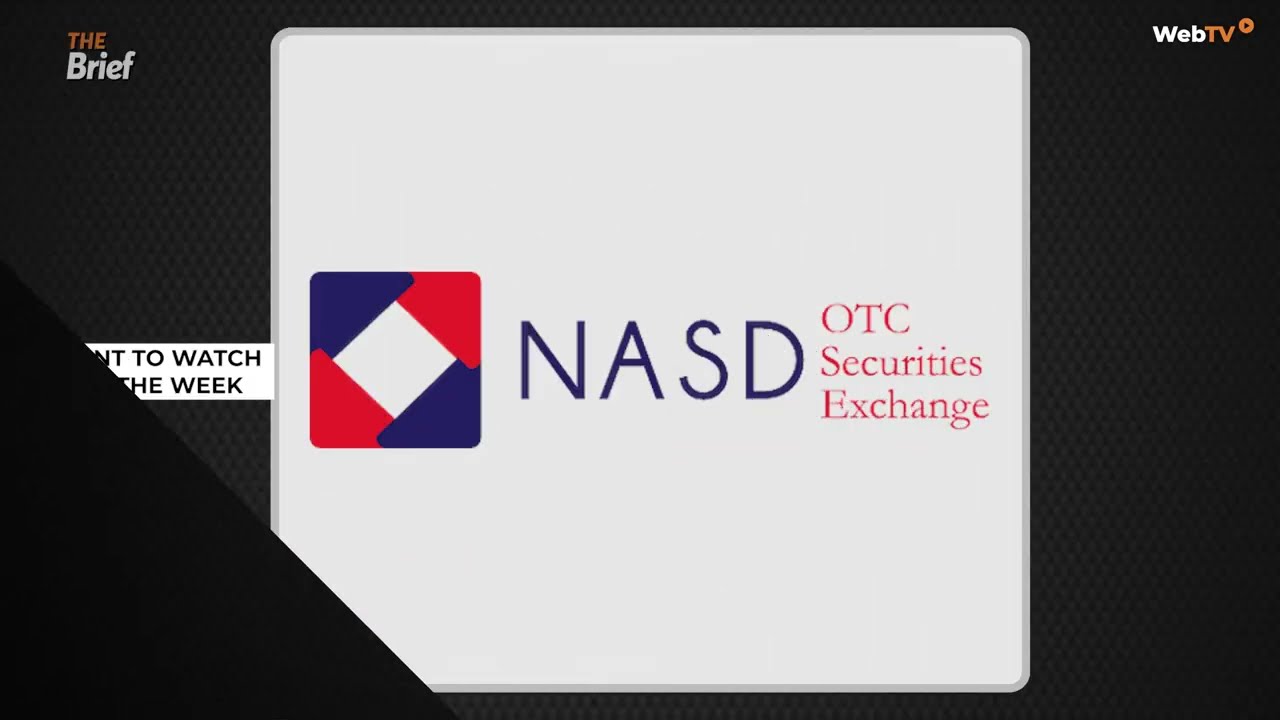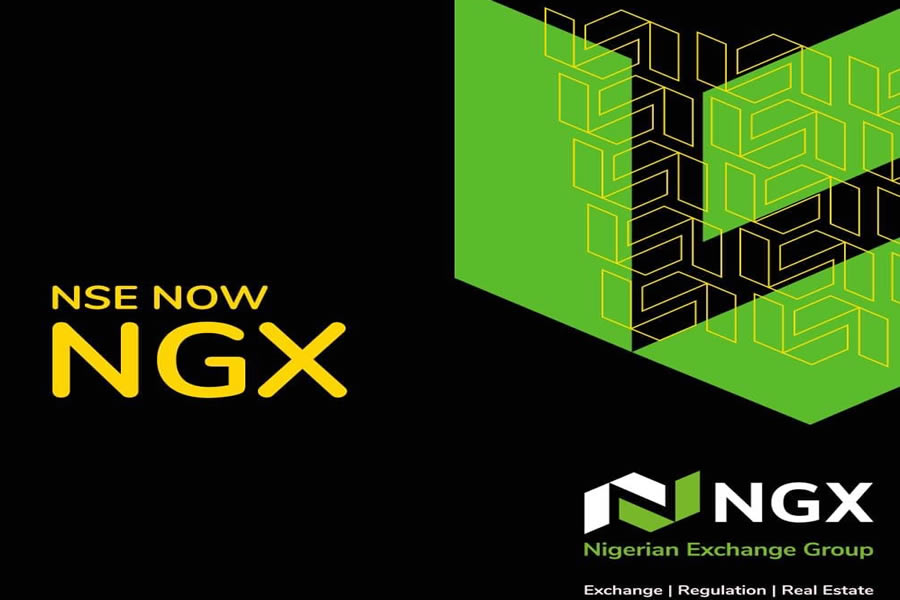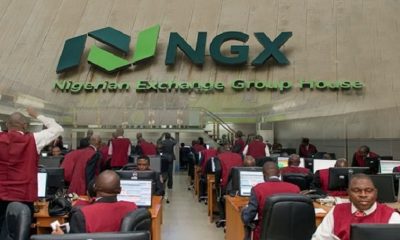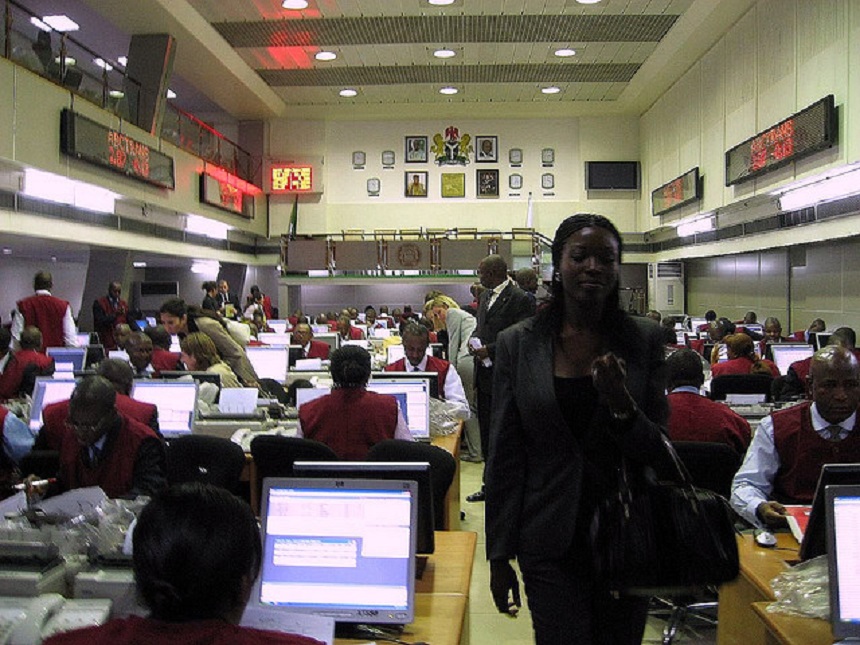Economy
All You Need To Know About Algorithmic Trading

There are now more options to improve or expand existing apps due to the rapid advancement of computer science and communication technology. The current developments have opened up fresh trading avenues.
Trades are placed using a computer program that follows a predetermined set of instructions (an algorithm). This kind of trading is also known as automated, black-box trading, or algo-trading. Profits may be generated at a pace and frequency inconceivable for a human trader to achieve in principle.
Just because it’s computer-driven doesn’t imply no one is involved. As a result of automated trading, human involvement has been shifted to a more back-office position, where new alpha-seeking techniques are developed on a regular basis.
High-frequency trading (HFT) is the most common kind of algo-trading today, and it relies on preprogrammed instructions to place a large number of orders quickly across a variety of markets and decision factors.
In this article, we’ll provide you with information on what are the main things that every trader should know about algorithmic trading.
How does algo trading work?
Pre-programmed instruction is used in algorithmic trading to execute transactions. Input characteristics like price, time, volume, and more are taken into consideration by these laptop applications. In order to make use of the processing power and speed of modern computers, several types of systems are employed. Automated trading is primarily a rapid, reliable, and accurate technique of placing orders. However, not everyone can apply this strategy, and some people may have doubts about its efficacy.
Because the decision to buy or sell is based only on the composite programs, algorithmic trading is a generally recognized method. There is no human intervention in making the transactions, which eliminates the influence of emotions. There are several ways to learn more about the way algorithmic trading works. One of the most common ways for investors is to visit an education section of Elite Currensea, where they can get more information about algo trading and its benefits. In addition to that, the section allows traders to generate trading strategies based on AI. Computers are better at completing tasks quickly than people are. Depending on the specifications, it can execute and monitor a variety of stocks at the same time.
There are no trades left unattended, thus it is quite skilled and resourceful. When traders take a break, the robot takes care of online share trading orders.
As a primary benefit, algorithmic trading removes human emotions from the trading process. Trades are carried out in accordance with a predetermined set of guidelines. Human trading, as opposed to algorithmic trading, is more susceptible to illogical trading choices due to human emotions. Thus, algo-trading often pushes traders to avoid taking on more risk than they can manage in order to prevent feelings of uncertainty.
For those interested in learning about algorithmic trading, the online education market has grown rapidly in the last several years. Getting into this field is now feasible without having to go through the lengthy academic path (8-10 years).
What are the main pros of algorithmic trading?
Individual involvement is minimal when it comes to algorithmic trading. Orders made on the basis of various technical indications are automatically distributed using digital means. Simple data access is all that is required for these gadgets. By not having to worry about losing money, they are safer than human dealers. Another advantage of these systems is that they may be quite profitable. However, there are several difficulties to overcome. Basic computer abilities are required for success in algorithmic trading.
Algorithmic trading’s performance is heavily reliant on precision and timeliness. The margin of error in algo trading is often extremely large if humans are involved. It’s possible for a computer to conduct transactions under a set of instructions, but this isn’t the case for algo-trading banks. As a result, strategic thinking is emphasized in order to help businesses make better, more accurate trade choices.
Moreover, there is no opportunity for traders to be influenced by their emotions since the tactics are pre-formulated. This means that once the pre-specified goals are satisfied, the deal is automatically performed, and the trader is left with no choice except to accept it as is. Over- and under-trading are kept in check by algo trading. As a result, there is no tolerance for error or divergence from the original trading plan.
A trader’s job is to identify the weak points in their trading system and devise workarounds as early as possible in order to prevent more losses. Trading algorithms allow traders to back-test their trades using historical data and compare them to the current market conditions. Using this approach, traders may determine for certain if their deals would have turned out identically.
Trading algorithms used in algo trading execute deals without human intervention. In response to market changes, the algorithm creates orders as soon as they are met. The trading process relies heavily on the quickness of entry and exit. Even a delay of a few seconds might result in losses. Better entry and exit speeds allow traders to catch market moves at their precise moment of entrance.
With the advent of automated trading, traders now have the chance to experiment with a wider range of trading platforms. Individuals and businesses may effectively and quickly exchange huge volumes of shares. Market participants may thus acquire a large number of shares and then sell them nearly immediately for a significant profit.
Algorithms and computers are used in algo trading. Because of this, executing many trades and strategies simultaneously becomes quite simple. Humans just could not have accomplished this.
Economy
N636bn BoI Loans to MSMEs Validate Economic Reform Agenda—Tinubu

By Modupe Gbadeyanka
President Bola Tinubu has expressed satisfaction with the disbursement of N636 billion as loans to business owners in the Micro, Small and Medium Enterprises (MSMEs) in the country by the Bank of Industry (BoI) in 2025.
In a statement signed by his Special Adviser on Information and Strategy, Mr Bayo Onanuga, the Nigerian leader disclosed that the development validates his government’s economic reform agenda.
Over 7,000 enterprises were given soft loans worth N636 billion by the lender last year, the highest annual financing volume in the institution’s history.
A breakdown of the financing shows that N202 billion was allocated to agro-allied enterprises, N100 billion to critical national infrastructure, including broadband, power, aviation, and transportation, N79 billion to manufacturing, N77 billion to extractive industries, and N55 billion to services.
In addition, the bank deployed N73 billion in managed and matching funds on behalf of state governments and institutional partners.
Under the BoI 2025 disbursement, strategic interventions included upgrading a tomato processing facility from 3.1 metric tonnes per hour to 10 metric tonnes per hour and linking 47,508 smallholder farmers to formal processing value chains.
The bank also supported the deployment of 100 mini-grids in partnership with global development finance institutions, connecting 11,777 new customers to electricity. BOI-financed projects contributed to an estimated annual reduction of over 20,000 tonnes of carbon emissions.
“The N636 billion disbursed by the Bank of Industry in 2025 translates directly into productive capacity across Nigeria. It financed agro-processing expansion, strengthened manufacturing output, supported infrastructure delivery, and empowered thousands of enterprises across our states.
“At a time of global financing constraints, Nigeria expanded access to long-term capital for its businesses. That is a direct outcome of reform, credibility, and institutional discipline,” Mr Tinubu said.
It was observed that disbursement by business size reflects a deliberate inclusion strategy. Nano enterprises received N51 billion. Micro businesses accessed N32 billion. Small and medium enterprises received N178 billion in financing, while large enterprises accounted for N375 billion.
Under the federal government’s N200 billion MSMEs intervention programme, BoI recorded over 95 per cent performance as the disbursing institution. The Presidential Conditional Grant Scheme reached 957,400 beneficiaries in 2025 alone.
In addition, BOI’s financing activities led to the creation and retention of approximately 1.6 million jobs. The bank supported more than 7,000 MSMEs and 570 startups during the year.
Inclusive financing initiatives also recorded a measurable impact. Through the Guaranteed Loans for Women Programme, a N10 billion gender-focused facility providing up to N50 million per beneficiary, women-owned enterprises expanded access to affordable credit. Youth-owned enterprises received N12 billion in financing. Under the Rural Area Programme on Investment for Development, 880 rural-based enterprises across the 36 states and the FCT accessed over N6.5 billion.
The President further noted that BOI maintained strong asset quality, recording a non-performing loan ratio below 1.5 per cent despite macroeconomic headwinds. He also acknowledged the €2 billion syndicated facility secured in 2024 and the additional €210 million mobilised from international partners in 2025, which strengthened the Bank’s lending capacity.
“Development finance must be disciplined, measurable, and aligned with national priorities. What we are witnessing is the transition from strategy to scale.
“Our economic transformation will be built on production, value addition, and enterprise growth. We will continue to crowd in capital, deepen institutional reform, and ensure that access to finance supports real sector expansion across Nigeria,” President Tinubu stated.
He reaffirmed his administration’s resolve to consolidate reform gains and expand credit access to enterprises as part of a long-term strategy to accelerate industrialisation and inclusive economic growth.
Economy
Six Securities Inspire NASD Exchange’s 2.13% Gain

By Adedapo Adesanya
Six equities buoyed the NASD Over-the-Counter (OTC) Securities Exchange by 2.13 per cent on Thursday, February 12, as the market capitalisation added N49.12 billion to end at N2.357 trillion compared with the previous day’s N2.308 trillion.
In the same vein, the NASD Unlisted Security Index (NSI) went up by 82.09 points during the session to settle at 3,940.90 points versus Wednesday’s closing value of 3,858.81 points.
Okitipupa Plc improved its value by N22.00 yesterday to N242.00 per share from N220.00 per share, Central Securities Clearing System (CSCS) Plc grew by N6.55 to N77.08 per unit from N70.53 per unit, NASD Plc rose by N4.62 to N50.88 per share from N46.26 per share, Food Concepts Plc appreciated by 29 Kobo to N3.20 per unit from N2.91 per unit, IPWA Plc advanced by 28 Kobo to N3.13 per share from N2.85 per share, and UBN Property Plc rose 1 Kobo to sell at N2.20 per unit compared with the preceding session’s N2.19 per unit.
Conversely, FrieslandCampina Wamco Nigeria Plc went down by N1.57 to N68.10 per share from N69.67 per share, and Geo-Fluids Plc depreciated by 39 Kobo to N3.63 per unit from N4.02 per unit.
As for the activity chart, the volume of trades declined by 99.2 to 8.6 million units from 1.06 billion units, the value of transactions shrank by 88.4 per cent to N53.9 million from N465.7 million, and the number of deals decreased by 25 per cent to 42 deals from 56 deals.
CSCS Plc remained the most active stock by value (year-to-date) with 18.2 million units valued at N790.9 million, trailed by Resourcery Plc with 1.05 billion units traded at N408.6 million, and Geo-Fluids Plc with 29.5 million units sold for N150.9 million.
Resourcery Plc closed the session as the most traded stock by volume (year-to-date) with 1.05 billion units worth N408.6 million, followed by Geo-Fluids Plc with 29.5 million units exchanged for N150.9 million, and Mass Telecom Innovation Plc with 20.1 million units transacted for N8.1 million.
Economy
All-Share Index Rallies 0.25% as Seplat, Others Lead Gainers’ Chart

By Dipo Olowookere
The Nigerian Exchange (NGX) Limited almost succumbed to profit-taking on Thursday, but for Seplat, which pulled its string to salvage the situation.
Seplat triggered a buying interest in its shares after informing the investing public of its intention to release its full-year results for 2025 on February 26, 2026.
It almost singlehandedly lifted the energy index by 4.64 per cent yesterday. This sector was the only one of the five with green at the close of business.
The others were in red, with the insurance space down by 1.47 per cent, the industrial goods segment went down by 1.09 per cent, the banking index closed lower by 0.13 per cent, and the consumer goods sector shrank 0.04 per cent.
Analysis showed that the All-Share Index (ASI) soared on Thursday by 441.28 points to 178,625.63 points from 178,184.35 points, and the market capitalisation grew by N283 billion to N114.660 trillion from N114.377 trillion.
Business Post reports that 46 equities were in green during the session and 35 equities ended in red, implying a positive market breadth index and bullish investor sentiment.
The trio of Deap Capital, RT Briscoe, and Seplat gained 10.00 per cent each to settle at N8.69, N15.84, and N8,107.00 apiece, while Zichis rose by 9.97 per cent to N9.82, with ABC Transport surging by 9.91 per cent to N7.43.
On the flip side, NAHCO lost 9.98 per cent to trade at N148.45, Abbey Mortgage Bank depressed by 9.68 per cent to N11.20, Eterna gave up 9.50 per cent to close at N30.00, May and Baker depreciated by 9.19 per cent to N40.50, and Ecobank weakened by 8.72 per cent to N45.00.
Access Holdings was the most active stock yesterday with 52.1 million units sold for N1.3 billion, Zenith Bank exchanged 42.5 million units worth N3.3 billion, Tantalizers transacted 42.1 million units valued at N253.9 million, GTCO traded 40.8 million units worth N4.3 billion, and Deap Capital transacted 34.4 million units valued at N298.1 million.
When the closing gong was struck by 2:30 pm to signify the end of trading activity, investors had bought and sold 698.3 million shares worth N28.4 billion in 50,886 deals compared with 939.2 million shares valued at N34.0 billion exchanged in 61,279 deals a day earlier.
This showed that yesterday, the trading volume, value, and number of deals decreased by 25.65 per cent, 16.47 per cent, and 16.96 per cent, respectively.
-

 Feature/OPED6 years ago
Feature/OPED6 years agoDavos was Different this year
-
Travel/Tourism10 years ago
Lagos Seals Western Lodge Hotel In Ikorodu
-

 Showbiz3 years ago
Showbiz3 years agoEstranged Lover Releases Videos of Empress Njamah Bathing
-

 Banking8 years ago
Banking8 years agoSort Codes of GTBank Branches in Nigeria
-

 Economy3 years ago
Economy3 years agoSubsidy Removal: CNG at N130 Per Litre Cheaper Than Petrol—IPMAN
-

 Banking3 years ago
Banking3 years agoSort Codes of UBA Branches in Nigeria
-

 Banking3 years ago
Banking3 years agoFirst Bank Announces Planned Downtime
-

 Sports3 years ago
Sports3 years agoHighest Paid Nigerian Footballer – How Much Do Nigerian Footballers Earn






















